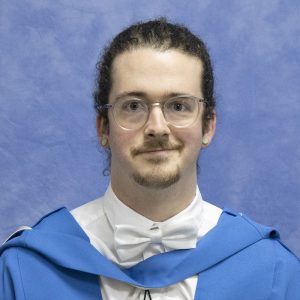This new programme offered at London School of Theology is designed to offer a well rounded, interdisciplinary approach to theology and discipleship. Students will engage theologically with philosophy, ethics, arts, and music to think critically and rigorously about what it means to be a disciple of Jesus in society today.
Introduction to BA Theology and Liberal Arts with the programme leader
This innovative addition to LST’s suite of undergraduate courses has been carefully designed to meet the needs of contemporary students, and the contemporary church. We are thrilled to be running it, and we look forward to welcoming students onto it.
– Professor Mark Cartledge, Principal and Professor of Practical Theology
Programme Overview
As well as a core programme of theological studies that builds off the existing strengths of our flagship BA in Theology, it offers a wide range of theology and liberal arts modules, including Analytic Theology, Theology, Imagination, the Arts and Science -Engaged Theology. As an integrated programme, this course allows you to gain a deeper understanding of the world around us and how God has created it while equipping you to serve the poor and marginalised in society as a disciple of Jesus.
Who is this programme for?
The Theology and Liberal Arts programme is designed for those who wish to engage in a broader humanities education than has been so far offered at London School of Theology. It provides a good grounding in Christian theology but also brings into dialogue other academic disciplines such as: philosophy and ethics, history and culture, literature, music, psychology, and sociology. The target audience is expected to include those who affiliate with the Christian faith and wish to practise the evangelical spirituality associated with the institution as the context of study and for that spirituality to inform personal and professional development. It is designed to integrate Christian theology into the broader goal of liberal arts education; namely to provide well-rounded education with the intention of creating good citizens.
Programme Structure
There are three levels of study, over three years , with three possible exit points on the programme, including a Certificate in Higher Education after 120 credits, a Diploma in Higher Education after 240 credits, or a BA (Hons) Degree after 360 credits.
What you will study at Level 4
In your first year, you will focus on learning the pedagogical and research skills to theologically engage the humanities well. This skills-based learning will then be tested through a series of readings in liberal arts and theology that will provide a basis for thinking about how to be a disciple of Jesus in society. Because of the emphasis on discipleship as mission, social justice and compassion, the reading selection will be intentionally global and include theological thinkers from a wide variety of cultures and backgrounds. This will be coupled with some foundational theology courses and introductory courses that engage specific humanities theologically. Throughout these courses, you will be challenged to think about how the skills and concepts you are learning can help disciples to share the love of Christ to a hurting society.
What you will study at Level 5 and 6
The following years of study will continue to build on the previous year’s skills and conceptual foundation. In this programme, you will uniquely be able to pick and choose your modules based around your particular interests and passions. These modules continue to hone the skills learned in the first year while diving deeper into theological engagements with various humanities. As these engagements become more specific, you will also be encouraged to explore practical and vocational applications for being a disciple and citizen in the world. This is paired with vocational studies in Theology and Liberal Arts Colloquium and practical placements within churches, ministries, or charitable organisations. This practical application and deep engagements with the humanities will support student dissertations or portfolios and advanced modules focusing on specific examples of discipleship as social justice.
Click here for details about Undergraduate Academic Regulations.
Time Commitment
For full-time students it is expected that you will be able to commit around 40 hours per week to your studies. For on-campus study, this normally equates to around 12 hours of lectures and 30 hours of personal study time with onsite lectures taking place 9am– 6pm on Mondays to Fridays. Students studying online modules will need to commit the same amount of time, though students can work more flexibly to complete their weekly study hours.
For part-time students it is expected that you will be able to commit around 20 hours per week to your studies. On campus lectures for part-time students are 2-3 days a week, 9am – 6pm, with days depending on the programme. For example, Theology Level 4 students have lectures on Mondays and Tuesdays in Year 1 and Thursdays and Fridays in Year 2. Online and blended students may work more flexibly but will need to be able to commit the same amount of time overall.
Study Modes
Applications for the Theology and Liberal Arts programme are invited at certificate, diploma or degree level. This programme can be studied full-time or part-time.
On-campus: Residential or non-residential. Lectures are timetabled Monday-Friday, 9am-6pm, delivered over three terms in two semesters from October-June.
Online: The BA Theology and Liberal Arts programme can be studied fully online, delivered in three semesters from October to July. Students can study together in timetabled blocks, interacting in discussion forums with module tutors.
Blended: All our undergraduate programmes, including BA Theology and Liberal Arts, can be studied in blended mode, with Theology modules taken online.
Entry Requirements
Students enrolling for the Certificate, Diploma or BA (Hons) in Theology and Liberal Arts must demonstrate the ability to undertake an undergraduate programme of this nature successfully.
This will normally mean two A levels plus three different GCSE passes at grade C or above (one GCSE must be English), or equivalent alternatives for students under 21.
Mature students (aged 21 and over) without these qualifications will be considered individually.
If you do not meet the above entry requirements, please contact the Engagement Team who will help you to identify a suitable programme of study.
Career Pathways and next steps
The BA in Theology & Liberal Arts equips students to pursue a variety of vocations and professions in different contexts after graduating. The interdisciplinary knowledge and skills obtained are well suited to a number of fields within an increasingly competitive graduate job market, including:
- Teaching
- Church Ministry
- Public Sector
- Work in Christian organisations or charities
- Business
- Arts and Entertainment
Graduates who perform well on this programme will also be finely prepared for further study, whether in theology or related disciplines.


